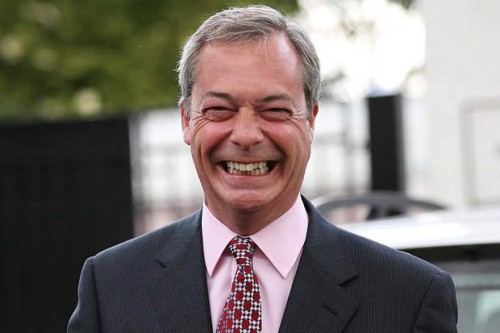
Nigel Farage has ruled out standing down as leader of the UKIP party despite a bitter row over his future.
Mr Farage told the BBC’s Question Time he had a “phenomenal” level of support within the party.
Leaving just as the PM was addressing the UK’s relationship with the EU would be a “massive mistake”, he said.
It follows a row in which UKIP’s election campaign chief said Mr Farage had become “snarling” and “aggressive”. Two aides subsequently departed.
Mr Farage also addressed a row over £650,000in public funding available to UKIP under a scheme to help minor parties fund their MPs’ activities.
He said he would recommend the party accepted none of it because he did not want “UKIP to look like other parties, grubbing around after public money” reported BBC.
UKIP gained nearly four million votes in the election, but only one MP – Douglas Carswell in the Clacton constituency.
He predicted that Prime Minister David Cameron would bring forward the promised referendum on the UK’s membership of the European Union and said it would not be right for UKIP to spend three months on a leadership campaign.
“The level of support for me in the party is phenomenal and, frankly, to go through a leadership contest at a time when [David] Cameron says he’s renegotiating our relationship with the European Union would be a massive, massive mistake,” he said.
And he said that although he was disappointed by Mr O’Flynn’s remarks, people were merely “letting off steam and… fighting personal wars” after a high-pressured election campaign.
Mr O’Flynn, who is also the party’s economic spokesman, later clarified that he wanted Mr Farage to remain leader, but the party confirmed the departures of secretary Matthew Richardson and chief of staff Raheem Kassam.
Several senior figures waded into the row, with deputy leader Suzanne Evans and donors Arron Banks and Richard Desmond declaring their support for Mr Farage.
Mr Farage stood down after failing to win the Kent seat of Thanet South, but was reinstated three days later when the party refused to accept his resignation.
This led to a divide at the top of the party which BBC political correspondent Robin Brant described as “very public and very nasty”.